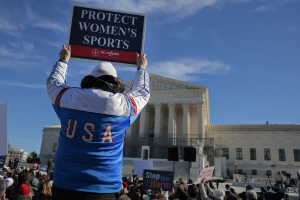Georgia Tech settles with pro-life student group, revises policies on student organizations

The Georgia Institute of Technology has reached a settlement with a pro-life student group that sued the school and others for denying funding for a speaking event that would have featured pro-life activist Dr. Alveda King.
As part of the settlement, announced Thursday, Georgia Tech agreed to clarify its policies regarding the treatment of student organizations to prevent viewpoint discrimination and pay $50,000 in damages and attorneys’ fees. Georgia Tech outlined its policy changes in its new “Registered Students Organization Policy,” which became effective in August.
“Approval or denial of a Group’s Charter application, or a determination by the Center for Student Engagement that a Group’s Chartering application is not complete, will not be based on the mission, goals, or beliefs of the Group or any other content- or viewpoint-based determination,” the policy stresses.
In April, Students for Life at Georgia Tech filed a lawsuit against Georgia Tech officials, the school’s Student Government Association and the regents of the University System of Georgia after their funding request for the event featuring King, the niece of late civil rights icon Dr. Martin Luther King Jr., was denied. The students were represented by Alliance Defending Freedom, a legal institute specializing in religious liberty cases.
“In the summer of last year, Students for Life at Georgia Tech submitted a request to the Student Government Association for funding the King event out of the pool of mandatory student activity fees available for such events. … Such requests are routinely ‘fast tracked’ without any discussion,” ADF explained.
According to ADF, members of the Student Government Association expressed concern about “the content and viewpoints that Students for Life and King would present at the event.” Citing King’s “inherently religious” lifestyle and concerns that some students would be offended by her point of view, the SGA denied the request.
Tyson Langhofer, director of the ADF Center for Academic Freedom, described the SGA’s refusal to fund the King event as an example of “hostility toward the First Amendment.” He cheered Georgia Tech’s decision to “revise their policies to treat all student organizations fairly, regardless of view point.”
“It’s so important that public colleges and universities exemplify the First Amendment values they are supposed to be teaching to students. Thankfully, Georgia Tech has shown its renewed commitment to these principles by taking quick corrective action,” Langhofer said.
Kristan Hawkins, president of Students for Life of America, also issued a statement praising Georgia Tech for establishing the “Registered Students Organization Policy.” “We are hopeful that Georgia Tech’s decisive policy changes will set an example for universities around the country,” she said.
Now that Georgia Tech has agreed to implement the “Registered Students Organization Policy,” ADF attorneys have dismissed the lawsuit.
Georgia Tech is not the only college in the United States to face accusations of suppressing students’ First Amendment rights.
Just two months after the Georgia Tech Students for Life filed their lawsuit, the student senate at Florida State University removed its president, Jack Denton, after his text messages proclaiming that groups like Black Lives Matter and the American Civil Liberties Union have taken positions that contradict with the teachings of the Catholic Church became public.
Two weeks ago, Denton filed a lawsuit against FSU, claiming that the student senate ousted him from his position “in retaliation for his private religious speech.” The ADF is representing Denton as he seeks “reinstatement, compensation, and the expungement of all records relating to the Senate’s retaliatory and discriminatory actions against him.”



























